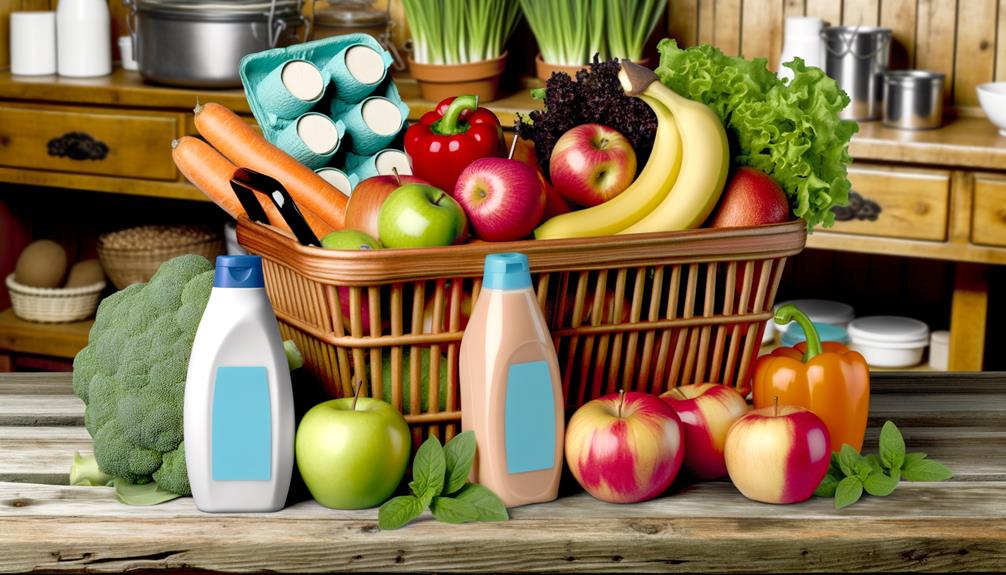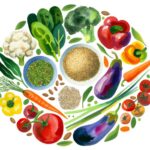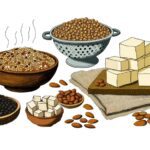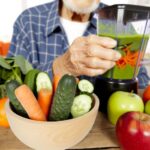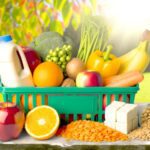Imagine your kitchen as a sanctuary, where every item on your shelves is a testament to a compassionate lifestyle that harms neither beast nor Earth. You’ve chosen to walk the cruelty-free path, and it’s not just about what you refrain from, but also about what you embrace. As you pen your grocery list, remember that this is more than a shopping ritual; it’s a reflection of your values. You’ll need to consider the staples that nourish without compromise: the plant-based proteins that stand in for animal products, the myriads of fruits and vegetables that color your plate with vitality, and the dairy alternatives that promise indulgence without the cost of suffering. But beyond these essentials lies a realm of choices that can shape the impact you have on the world. Will you opt for the locally sourced, the organic, the minimally packaged goods that speak to a deeper understanding of cruelty-free? And how will you navigate the subtleties of ethical consumption in a world that’s not quite caught up with your ideals? The answers to these questions form the mosaic of a lifestyle that’s as kind as it is conscious, and it’s within these nuances that your journey truly begins.
Key Takeaways
- A cruelty-free diet excludes all animal-derived ingredients and reflects a deep respect for animal life and welfare.
- Locally sourced and organic goods can enhance a cruelty-free lifestyle while minimizing environmental impact.
- Plant-based protein sources like beans, legumes, tofu, tempeh, nuts, seeds, grains, vegetables, and vegan meat substitutes are essential for a cruelty-free diet.
- Dairy and egg alternatives such as plant-based milks, cheeses, and ice cream offer compassionate alternatives to traditional dairy products.
Defining a Cruelty-Free Diet
A cruelty-free diet excludes all animal-derived ingredients, ensuring your meals reflect a deep respect for animal life and welfare. Embracing this way of eating, you’re not just nourishing yourself, but you’re also serving the greater good, fostering kindness with every bite. Your vegan diet is more than a personal choice; it’s a statement of compassion, a commitment to a world where all beings can thrive.
Stocking your vegan pantry means prioritizing eating healthy with a variety of plant-based foods. Begin with whole grains like quinoa and brown rice, rich in fiber and essential nutrients. Beans and lentils are staples in your vegan grocery list, offering a hearty base for countless dishes while providing ample protein. Vegan milk, such as almond or soy, becomes a daily necessity, ensuring you don’t miss out on the creamy textures you love while getting essential vitamins.
When you choose a plant-based diet, you’re not only avoiding animal products, but you’re also investing in a sustainable future. Each item on your grocery list carries the promise of a kinder planet. It’s a lifestyle that requires vigilance and dedication, but with cruelty-free and vegan certifications, you can trust that your choices align with your values.
Plant-Based Protein Sources
While stocking your pantry with whole grains and vegan milk lays the foundation for a cruelty-free diet, don’t overlook the importance of incorporating a variety of plant-based protein sources to maintain a balanced and nutritious meal plan. These proteins are the lifeblood of your vegan meals, ensuring that every dish is both satisfying and aligned with your compassionate values.
Beans and legumes are the cornerstones of plant-based food, offering both protein and complex carbs. Tofu and tempeh, made from soybeans, are incredibly versatile and can be used to mimic the texture of meat in a variety of dishes. Nuts and seeds, like hemp seeds and chia seeds, not only provide essential protein but also healthy fats that are crucial for your body.
For those times you crave the familiarity of traditional dishes, there are meat and dairy alternatives such as plant-based meats and vegan cheeses that can transform any recipe into a cruelty-free feast.
Here’s a quick guide to help you balance your protein intake:
| Protein Source | Benefits |
|---|---|
| Beans & Legumes | High in protein and fiber |
| Tofu & Tempeh | Meat-like texture, high in protein |
| Nuts & Seeds | Healthy fats, protein, versatile in use |
| Grains & Vegetables | Essential vitamins, minerals, and protein |
| Vegan Meat | Satisfies cravings, easy meat substitute |
Dairy and Egg Alternates
Diving into dairy and egg alternatives, you’ll find a plethora of plant-based options that let you indulge in your favorite flavors without compromising your ethical choices. Your grocery shopping list can include almond milk for your morning cereal, coconut milk for creamy curries, and oat milk for that perfect cup of coffee. Vegan cream cheese and cashew cheese spread kindness on your bagels and crackers, ensuring you’re not missing out on the joy of dairy.
When you scour the aisles of your major grocery store, remember to look for Follow Your Heart products, which offer a compassionate twist to traditional dairy items. From vegan mayonnaise that can uplift any sandwich to dairy-free dressings that add zest to your salads, these vegan products ensure that your culinary creations are both delicious and kind-hearted.
And let’s not forget about ice cream – a treat where compassion meets indulgence. You’ll be delighted to find a variety of new products that mirror the creaminess and delight of traditional ice cream, yet are made from plant-based ingredients. So, as you pen down your shopping list, rest assured that choosing dairy and egg alternates doesn’t mean sacrificing flavor or enjoyment; it means embracing a life that cherishes all beings.
Essential Fruits and Vegetables
Your journey to a compassionate lifestyle is incomplete without the vibrant array of fresh fruits and vegetables that are the cornerstone of any cruelty-free diet. Embracing a plant-based path means nourishing your body with the essential vitamins and fiber found in these natural treasures. Whether you’re crafting a colorful salad or a warming stew, fresh organic vegetables serve as the heart of your culinary creations, aligning with your values of kindness and respect for all beings.
In your quest to serve others and the planet, don’t overlook the convenience and nutritional value of frozen veggies and fruits. Frozen vegetables maintain their texture and vital nutrients, ready to enliven your stir-fries or casseroles. Likewise, frozen fruits are perfect for smoothies or desserts, their flavor and goodness locked in.
Complement your fruits and vegetables with whole grain products like brown rice, which provide a wholesome foundation for your meals. Introduce variety by experimenting with herbs and spices that add depth and excitement to your dishes. And for those moments when you crave something familiar, plant-based deli slices are a cruelty-free alternative that can satisfy your palate without compromise.
Cruelty-Free Snacks and Treats
Satisfy your snack cravings with a selection of cruelty-free treats, from the simple joy of popcorn to the rich indulgence of dark chocolate. As you strive to serve others with compassion and respect for all living beings, your snack choices play a vital role in promoting a cruelty-free world.
When you buy vegan foods, you’re making a statement against animal cruelty and taking a stand for the environment. To minimize food waste and prioritize health, opt for snacks that are easy to make and lightly processed. Here’s a list that can guide you at grocery stores like Whole Foods:
- Vegan cookies: Enjoy these sweet treats made with love, sans dairy or eggs.
- Popcorn seasoned with Sea Salt: A classic, whole-grain snack that’s both satisfying and simple.
- Veggie chips: Crunchy delights that offer a healthier alternative to traditional chips.
- Dark chocolate: Indulge in the pure taste of cocoa, often paired with fair trade practices.
- Energy bars with dried fruits and maple syrup: These provide natural sweetness and a boost of energy without the cruelty.
Frequently Asked Questions
How Do You Live a Cruelty-Free Lifestyle?
To live a cruelty-free lifestyle, you’ll embrace compassionate shopping, wear ethical clothing, and choose beauty without harm, such as vegan cosmetics and plant-based skincare. You’ll enjoy animal-friendly entertainment and invest ethically.
What Is Essential in a Vegan Diet?
You’ll need plant-based proteins, whole grain staples, and fiber-rich fruits. Don’t forget the iron-rich veggies, calcium-packed foods, and leafy greens. Nutritional yeast, Omega-3 sources, and vegan B12 are essential for your compassionate crusade.
What to Buy at the Grocery Store as a Vegan?
When you’re at the store, grab plant-based milks, vegan cheeses, and whole grains. Don’t forget leafy greens, meat substitutes, fresh fruits, nut butters, organic legumes, seed varieties, and cruelty-free snacks.
What Is Cruelty-Free Food?
Cruelty-free food means you’re choosing items with vegan certification, ensuring no animal ingredients and ethical sourcing. It’s about compassionate shopping, with plant-based alternatives reflecting your concern for animal welfare and product transparency.
